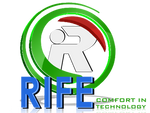Wayfinding & Directory Kiosks for Hospitals
Wayfinding & Directory Kiosks for Hospitals
Overview
Wayfinding & Directory Kiosks are interactive digital stations designed to help patients, visitors, and staff easily navigate complex hospital environments. These kiosks provide real-time directions, facility maps, and location information, significantly reducing confusion and stress during hospital visits.

Key Features
-
Interactive Maps: Touch-enabled digital maps help users locate departments, wards, clinics, amenities, and specific rooms quickly.
-
Step-by-Step Directions: Kiosks generate clear, step-by-step navigation from the user’s current location to their destination.
-
Real-Time Updates: Instantly reflect changes in room locations, department moves, or temporary closures to ensure accurate guidance.
-
Mobile Integration: Users can transfer directions from the kiosk to their mobile devices for continuous navigation throughout the facility.
-
Multi-Language Support: Directions and information are available in multiple languages, catering to diverse patient and visitor populations.

-
Accessibility Features: Adjustable text sizes, audio instructions, and ergonomic design ensure usability for people with disabilities.
-
Custom Branding: Kiosks can be customized with hospital colors and logos to reinforce brand identity.
-
Emergency Alerts: Integration with hospital systems allows kiosks to display emergency notifications and real-time appointment updates.
Benefits
-
Faster Navigation: Patients and visitors reach their destinations more quickly, reducing late arrivals and missed appointments.
-
Reduced Staff Burden: Staff spend less time giving directions, allowing them to focus on core responsibilities.
-
Streamlined Patient Flow: Efficient navigation minimizes congestion in hallways and waiting areas, improving operational efficiency.
-
Cost Savings: Reduces the need for printed maps and frequent signage updates, lowering operational costs.
-
Enhanced Patient Experience: Reduces stress and anxiety, leading to higher satisfaction and loyalty.
-
Inclusive Access: Ensures everyone, including non-English speakers and people with disabilities, can navigate the hospital independently.
How It Works
-
Start: User selects the “Wayfinding & Directory” option at the kiosk.
-
Search: User enters or selects their destination (department, room, doctor, or service).
-
Directions: Kiosk displays an interactive map and provides step-by-step navigation.
-
Mobile Option: Directions can be sent to the user’s mobile device for ongoing guidance.
-
Real-Time Updates: Any changes in routes or schedules are immediately reflected on the kiosk.
Success Metrics
-
Significant reduction in time spent searching for locations within the hospital.
-
Noticeable decrease in staff interruptions for wayfinding assistance.
-
Improved patient and visitor satisfaction scores related to navigation and ease of access.
Conclusion
Wayfinding & Directory Kiosks transform the hospital navigation experience, making it easier, faster, and more inclusive for everyone. By providing real-time, interactive guidance, these kiosks enhance operational efficiency and contribute to a more welcoming healthcare environment.
